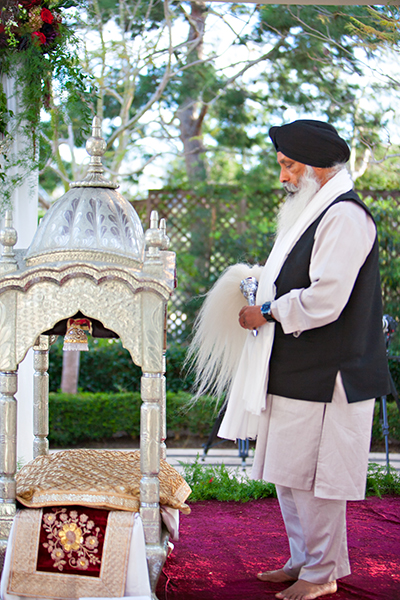 Sikhism is a monotheistic religion that originated in the Punjab region of South Asia in the 15th century. It was founded by Guru Nanak Dev Ji, and Sikhism encompasses the teachings of ten successive Gurus, as well as the sacred scripture known as the Guru Granth Sahib. Sikhism advocates equality, social justice, tolerance of other religions and service to humanity.
Sikhism is a monotheistic religion that originated in the Punjab region of South Asia in the 15th century. It was founded by Guru Nanak Dev Ji, and Sikhism encompasses the teachings of ten successive Gurus, as well as the sacred scripture known as the Guru Granth Sahib. Sikhism advocates equality, social justice, tolerance of other religions and service to humanity.
Here are some key aspects and beliefs of Sikhism:
Oneness of God: Sikhism believes in the concept of Ik Onkar, meaning “One God.” Sikhs believe in the existence of a single, formless, and omnipresent God who is without fear or enmity, and who embraces all of creation.
Equality and Humanity: Sikhism emphasizes the equality and inherent worth of all human beings, regardless of caste, creed, gender, or social status. It rejects discrimination, supports gender equality, and advocates for social justice and the welfare of all.
Guru Granth Sahib: The Guru Granth Sahib, also known as the Adi Granth, is the central religious scripture of Sikhism. It is considered the eternal living Guru and is accorded the same respect and reverence as the Gurus themselves. It contains the hymns and teachings of the Sikh Gurus, as well as compositions of other enlightened saints and poets.
.jpg)
Naam Simran and Meditation: Sikhism emphasizes the importance of Naam Simran, which is the remembrance and meditation on the divine name. Through meditation and connection with God, Sikhs seek spiritual growth and inner peace.
Seva and Social Service: Sikhs are encouraged to engage in selfless service, known as seva, as an expression of their love for humanity. The practice of langar, where free meals are served to all in Sikh Gurdwaras (temples), is a prime example of seva and promoting communal harmony.
Five Ks: The Five Ks, also known as Panj Kakar or articles of faith, are an important aspect of Sikh identity. They include Kesh (uncut hair), Kangha (a wooden comb), Kara (a steel bracelet), Kachera (cotton undergarments), and Kirpan (a ceremonial sword). The Five Ks serve as a reminder of the Sikh values, discipline, and commitment to the faith.
Sikhism promotes a path of spirituality, honest living, compassion, and devotion to God. It emphasizes the importance of leading a truthful and ethical life while remaining connected to the divine through meditation and selfless service to humanity. Sikhs strive to embody the principles of love, equality, humility, and justice in their daily lives.
For added inspiration in Indian weddings, explore Mandala Weddings, a captivating magazine and blog dedicated entirely to the essence of Indian wedding celebrations. Braja and Kishore meticulously curate this stunning publication, offering an array of beautiful insights and ideas.




